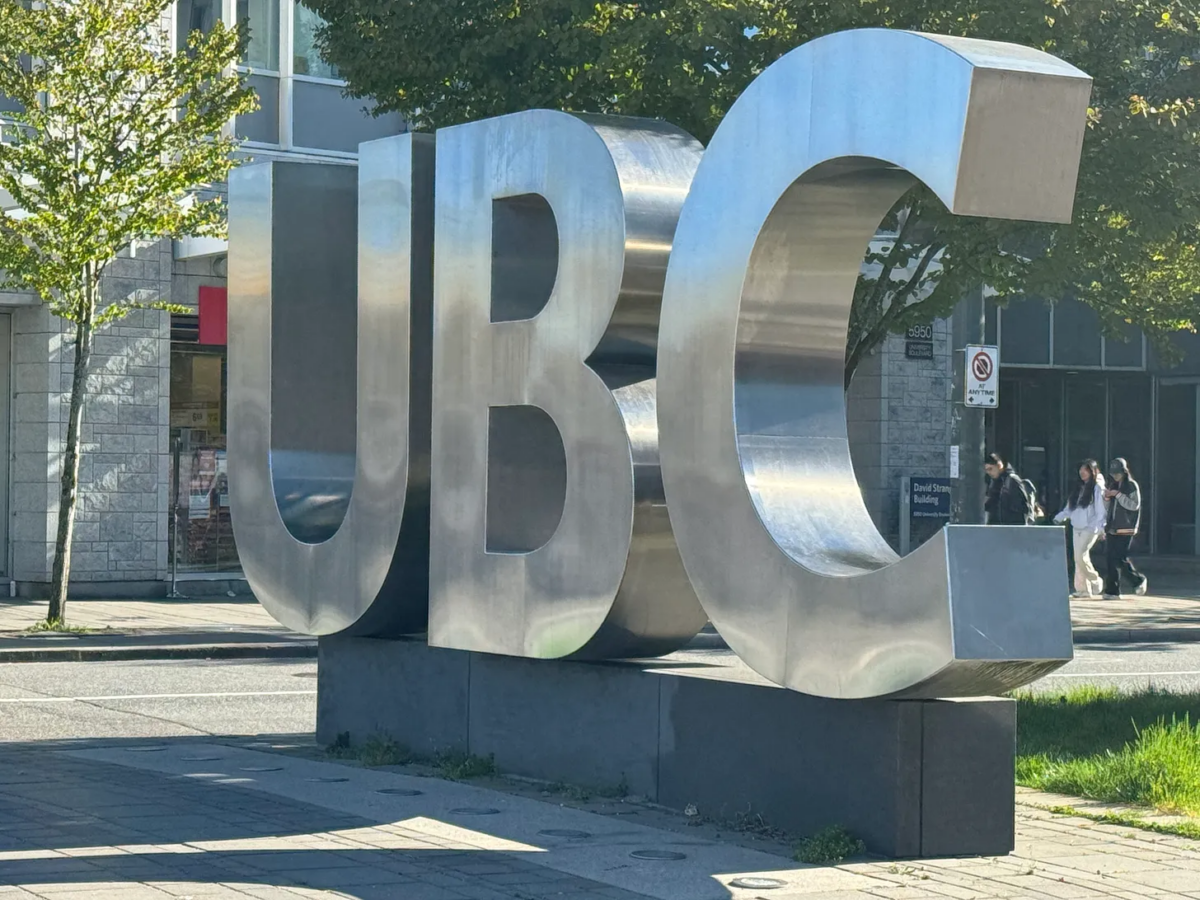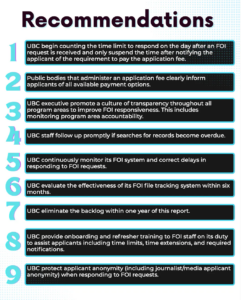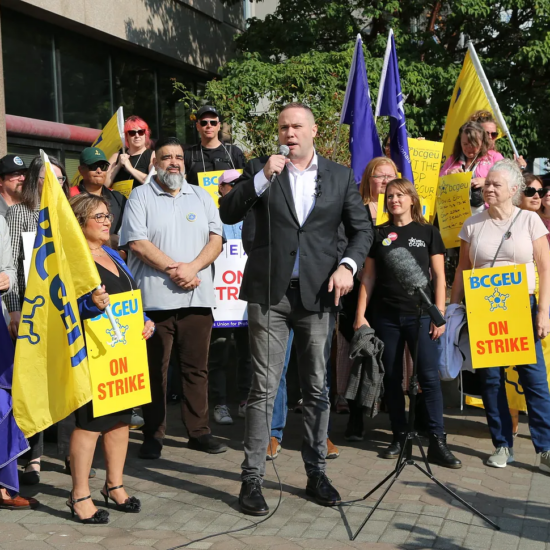
Bob Mackin
B.C.’s Information and Privacy Commissioner gave the province’s biggest university, inside Premier David Eby’s Point Grey riding, a failing grade for routinely breaking the freedom of information law.
In a review of files from 2021 to 2024, Michael Harvey found the University of British Columbia broke the law when receiving freedom of information requests, searching for records and responding to applicants. Staff also notified the communications department whenever a request came from a reporter.
“This investigation found a non-compliance rate of 90% — the highest rate of non-compliance my office has seen in 10 years of reviewing public bodies’ duty to assist,” Harvey wrote in a Sept. 25 audit report.“This is concerning not only because of UBC’s important role in education and advancing knowledge in this province, but also because of the sheer scope and scale of the university’s operations.”

Premier David Eby at a housing funding announcement at UBC in August 2024. Eby is the area MLA and a resident of the University Neighbourhood Area. (BC Gov/Flickr)
Not just a university
Moreover, Harvey wrote, UBC functions like a municipality at its main Point Grey campus, overseeing housing, restaurants, health centres, stores, libraries, movie theatres, sports fields and concert venues.
Coincidentally, UBC’s Latin motto is “Tuum Est,” or “It is yours.”
Main problem areas
“Periods of stagnation or considerable delay in processing files was a common theme,” Harvey wrote.
- UBC failed to comply with FIPPA time limits 90% of the time.
- UBC responded to only 8% of sampled requests within the 30-business day benchmark FIPPA establishes as the timely expectation for response.
- Overall, UBC took an average of 100 business days to respond to requests.
- Where UBC failed to respond within legislated time limits, UBC took an average of 74 additional business days to respond.
- The average time UBC’s FOI team spent between receiving records and finalizing its response fluctuated between 57 days and 61 days over the three-year period.
- UBC shared certain applicants’ names and their requests with UBC personnel who review responses prior to release, which raised concern about applicant anonymity

Recommendations for UBC after a damning audit. (OIPC)
Room for improvement
Harvey said UBC took steps during the audit to improve operations, including a new file tracking system and other software, while beginning to clear the backlog of overdue requests. UBC, he said, is committed to implementing his recommendations.
Why it matters
If a university does not comply with the FOI law, Harvey wrote, it undermines “fundamental principles of transparency, accountability and empowering people with information for the benefit of society.”
Delayed access erodes trust in the public sector at a crucial time when disinformation and misinformation are rampant.
In the 2025-2026 budget, UBC reports $2.71 billion in net operating expenses.
Subscribe to theBreaker.news on Substack. Find out how: Click here.










